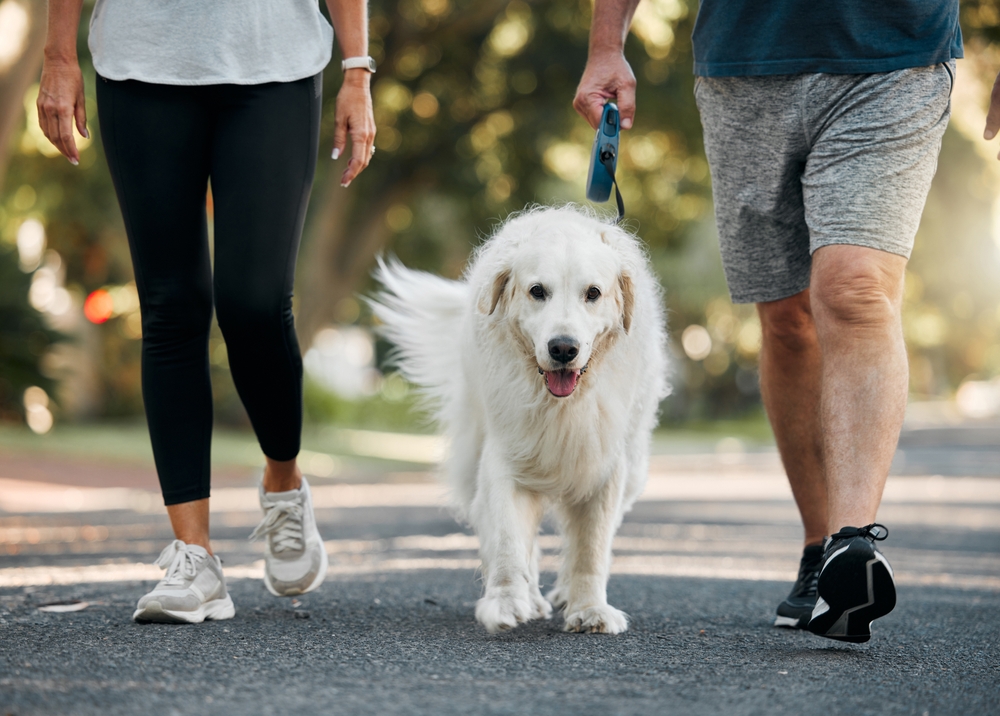Bladder Stones in Dogs
Bladder stones in dogs are fairly common and can make urination difficult or painful. Don’t take bladder stones lightly, though. If left untreated, they can create significant discomfort and lead to serious complications. Keep reading to learn more about how to spot this condition and what you can do to lower your dog’s risk of developing bladder stones.

What Are Bladder Stones?
Sometimes excess minerals in the body crystallize and clump together, creating solid masses. These masses can occur in various body areas, but bladder stones only develop in and affect the bladder. There are different types of bladder stones. Struvite stones tend to form when a urinary tract infection (UTI) is present or when bacteria produce urease in the bladder. Either of these can change the pH of the urine to become alkaline, which creates the ideal environment for the mineral structures to grow and clump together. Once the stones grow larger, they might trap bacteria in between, which can lead to further infection.
Signs of Bladder Stones in Dogs
Although struvite stones tend to be more common in young female dogs of the smaller breeds, any dog could develop them. Symptoms vary depending on the size, number, and location of the stones. In milder cases, dogs might not display any symptoms. Common signs of bladder stones in dogs include:
- Difficulty or pain while urinating
- Frequent urination
- Blood in the urine
- Straining to urinate with little urine produced
- Unusual accidents in the home (especially if your dog is potty trained)
Bladder stone symptoms will be more severe if the struvite stone(s) have grown large enough to create a bladder obstruction. More severe symptoms include:
- Vomiting
- Lethargy
- Abdominal pain or swelling
- Dehydration
- The risk of bladder rupture
It is crucial to get veterinary attention if you suspect there is a bladder obstruction, as this could be a life-threatening condition.
Diagnosis and Treatment for Bladder Stones in Dogs
Your veterinarian will use different tools to diagnose bladder stones. Sometimes, they can be felt during a physical exam. Your veterinarian may choose to collect urine for a urinalysis test to check for the presence of blood, crystals, or other abnormalities. X-rays or ultrasound can also help visualize the bladder for a more definitive diagnosis.
Treatment for bladder stones depends on their size, type, and location, as well as your dog’s overall health. Small struvite stones may dissolve and pass naturally through the urinary tract with increased hydration and a prescription diet formulated to dissolve certain types of bladder stones. Antibiotics may also be necessary to reduce inflammation, and fluid therapy can help flush out the urinary tract.
If this course of treatment does not work, a non-surgical procedure called lithotripsy can break up the stones. In severe cases, a dog may need bladder surgery.
Preventing Bladder Stones in Dogs
Most dogs have a favorable prognosis after their bladder stones are treated. There are specific lifestyle changes you can make to decrease your dog’s risk of developing stones or developing them again. These include:
- Increase your pet’s water intake and ensure your pet has access to fresh, clean water at all times.
- Feed your pet a balanced, age-appropriate diet, and avoid diets high in minerals.
- Have your vet regularly monitor urine samples during wellness visits.
- Provide regular exercise or movement to help reduce stress and improve well-being.
If you suspect your dog has bladder stones, it is essential to schedule a veterinary visit. The sooner you can get veterinary intervention, the faster you can find and treat the source of the issue and prevent it from getting worse. By working to prevent bladder stones in dogs, then monitoring for symptoms and following your veterinarian’s recommendations, you can help keep your furry friend’s urinary tract healthy and stone-free.
Our expert specialty veterinarians at Oakland Veterinary Referral Services can help you find long-term relief for your pet’s ailments. Whether your dog is suffering from bladder stones, your cat has allergies, or you are dealing with another animal disorder, we are here for you. To learn more about our services or to schedule an appointment, please call (248) 334-6877.


